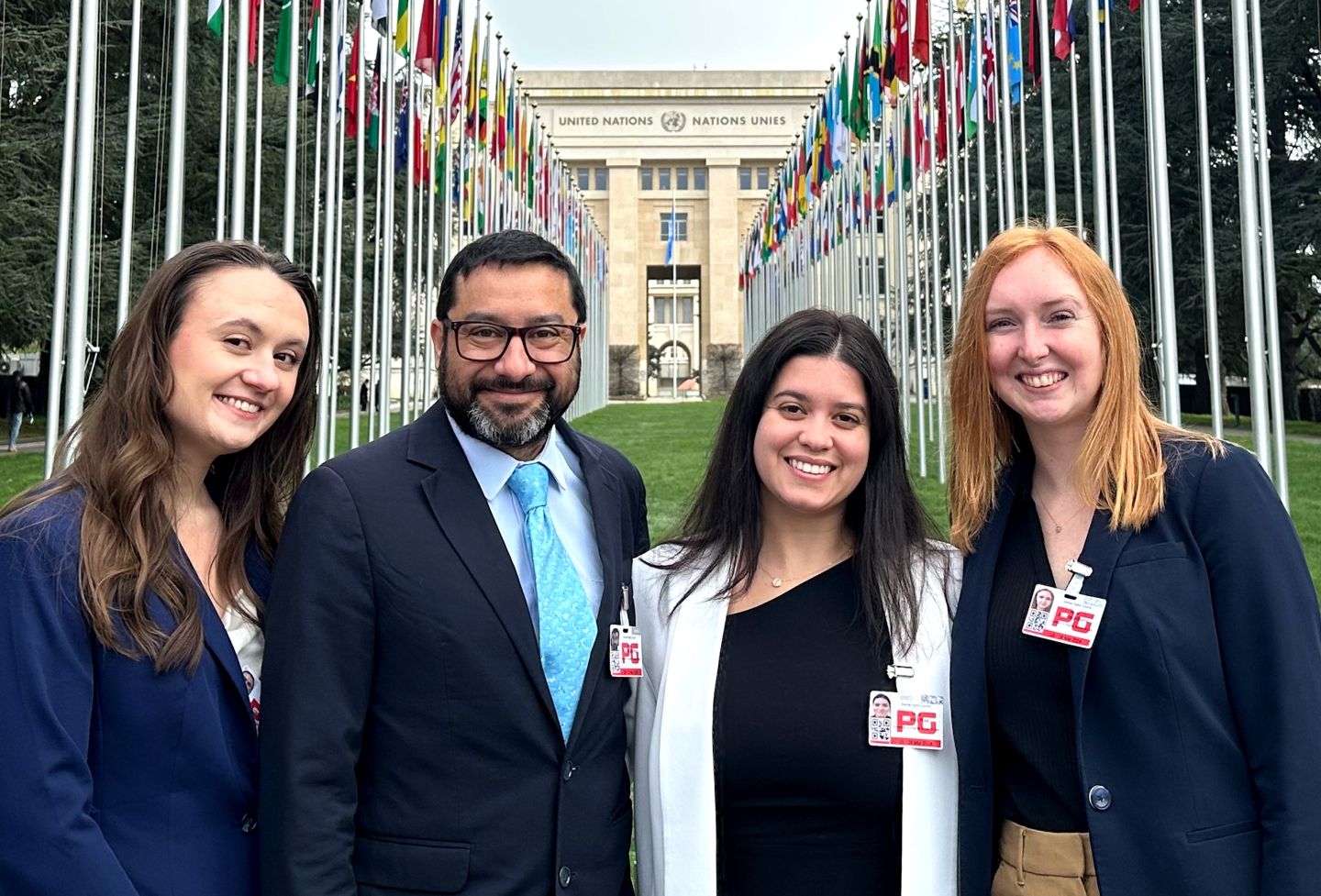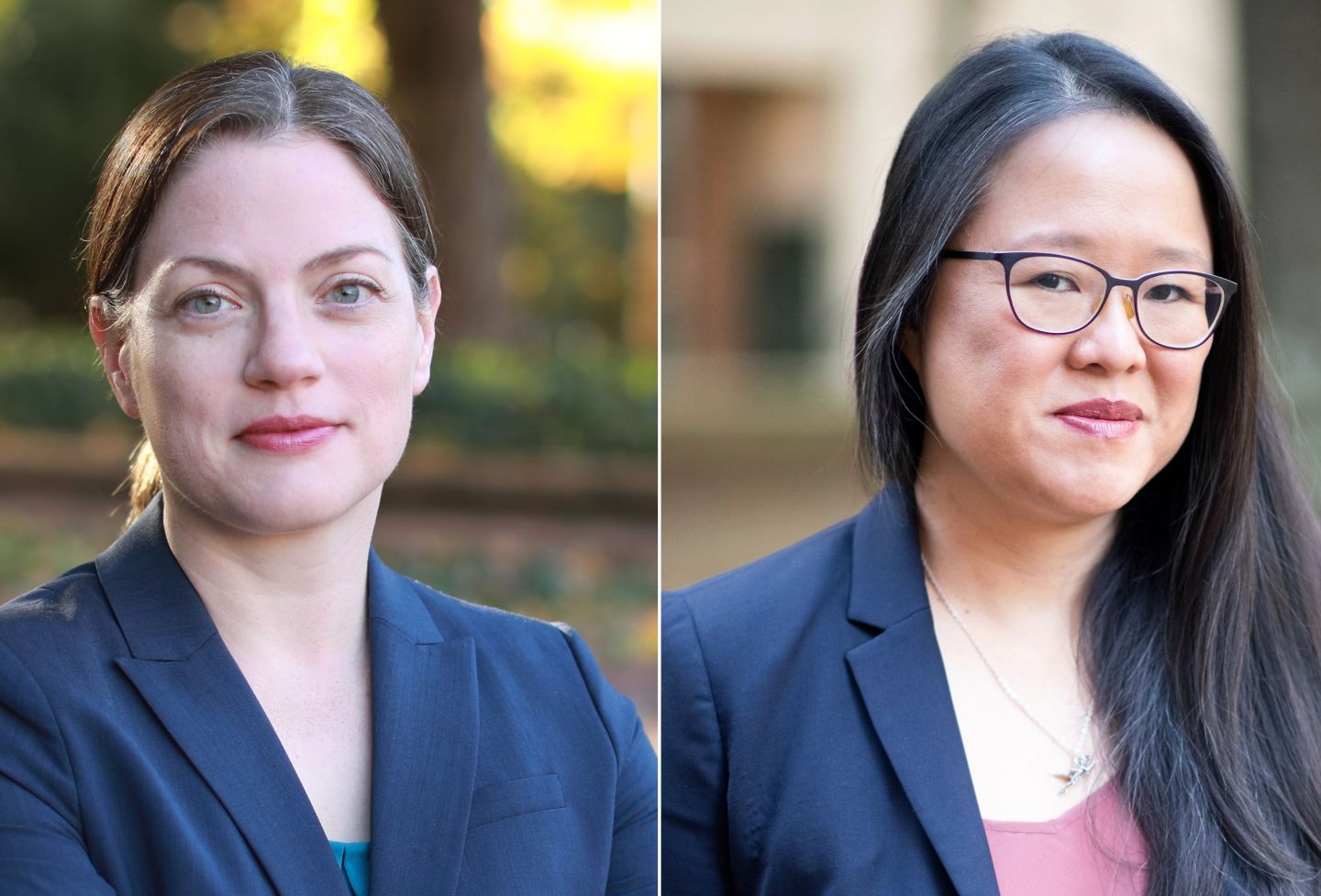A recent U.S. Supreme Court decision paves the way for a new round of hearings for Guantanamo Bay prisoners, but leaves several procedural questions open, according to a panel of legal experts who convened Oct. 1 at the Law School.
The panel, which included members from academia, the military, the U.S. Department of Justice and the American Civil Liberties Union, was sponsored by the Human Rights Program and analyzed the Boumediene v. Bush decision handed down this summer.
"Boumediene v. Bush was a very significant ruling as a protection of liberties," said Law School Professor David Martin, who provided background on the case during the panel discussion.
In a 5-4 decision, the court ruled that a prisoner held in at the U.S. facility in Guantanamo Bay, Cuba, has the right to use habeas corpus to challenge the legality of his detention to an independent judicial officer.
The decision suggests the ruling applies to prisoners held in Guantanamo Bay "and maybe to some locations beyond Guantanamo where the United States has complete control," Martin said.
In addition to preserving basic liberties and functioning as a needed check on executive authority, the case sets an important precedent for the coming years, Martin said.

"As we look toward the kinds of challenges that we will face as a nation in the coming decade, it's likely that we're going to be involved in irregular conflicts. We're going to be projecting U.S. power around the world and the executive may exercise coercive authority against citizens and aliens in many places around the world."
As such, it's important to establish a legal framework for such cases that includes considerations of what rights such prisoners have, Martin said.
Though the decision makes clear that Guantanamo Bay prisoners have a right to a habeas appeal, authorities still have to answer important questions such as the appropriate standards for determining whether a prisoner is an enemy combatant, Martin said.
"Boumediene is significant because it's not just the political branches that will be settling this. The courts will play a role," Martin said.
Exactly what role remains to be seen, according to August E. Flentje, counsel to the assistant attorney general for the Civil Division of the U.S. Department of Justice.
The case set the stage for proceedings to challenge the legality of detention for enemy combatants in Guantanamo, but didn't give a lot of direction about what those proceedings should look like, Flentje said.

"From the Justice Department's perspective, these are important questions and issues that are going to be hashed out in District Courts in the coming weeks and months," he said.
These questions include procedural issues such as how the court determines whether to believe the government's evidence against a detainee if it is based on military intelligence and what the standard of proof should be, Flentje said.
Also in dispute is whether the courts should assume the accuracy of military intelligence, a notion defendants object to.
Not assuming that such intelligence is accurate would present a strange situation, as the military relies upon it to take action, Flentje said.
"The bottom line is that the government can drop bombs based on this information, so it should be able to detain," he said.
There's also the question of what these habeas hearings should look like.
"Are these going to be witnesses? Are they going to be based on papers filed by the parties?" Flentje said.
In addition to procedural questions, there is the larger issue of defining the standard for detention.
"All of these issues are yet to be resolved and there are many legal people concerned on both sides of those issues," he said.
Hina Shamsi, a staff attorney with the American Civil Liberties Union's National Security Project, said the procedural questions left in the wake of the Boumediene decision are the result of the Bush administration's decision not to use existing legal mechanisms for trying detainees.
"This all comes about because of the administration's efforts to create in Guantanamo a law-free zone," said Shamsi, who has visited Guantanamo Bay several times to observe military commission proceedings against detainees.
In the wake of Sept. 11, 2001, the president asserted the authority to hold people outside of either the Constitution or the international laws of war, either of which could have provided a framework for trying such detainees, Shamsi said.
Since then, the Supreme Court has reined in that authority in a series of decisions.
"In many ways Boumediene is the most far-reaching of those decisions, because it says that in fact, the status of what the administration calls 'enemy combatants' is not dependent upon having constitutional protections, or on the place where the person is held."
She agreed that the decision leaves open questions such as whether the detainees have rights to due process or counsel.
U.S. Army Col. Bruce A. Pagel, the deputy chief prosecutor for the Office of Military Commissions, said military authorities have a number of concerns about the Boumediene decision.

"The first and most obvious and self-evident, and the broadest, is our concern that our military judgment under the Military Commission Act will be overruled and allow the First, Fourth, Fifth, Sixth Amendment rights to creep into our litigation," he said.
The introduction of such constitutional issues could generate additional motion practice for military lawyers and bog down the system that is in place, he said.
"It will also cause motions that are already filed to be recast," he said.
Pagel cited other instances in which the courts have denied constitutional protections to aliens.
"We thus far have been successful in front of military judges in making these arguments," he said.
Founded in 1819, the University of Virginia School of Law is the second-oldest continuously operating law school in the nation. Consistently ranked among the top law schools, Virginia is a world-renowned training ground for distinguished lawyers and public servants, instilling in them a commitment to leadership, integrity and community service.


